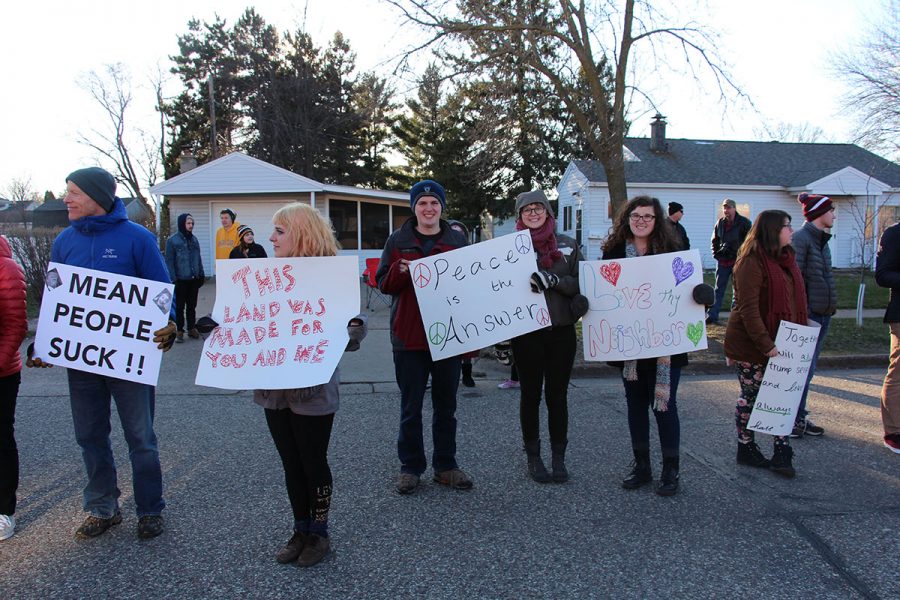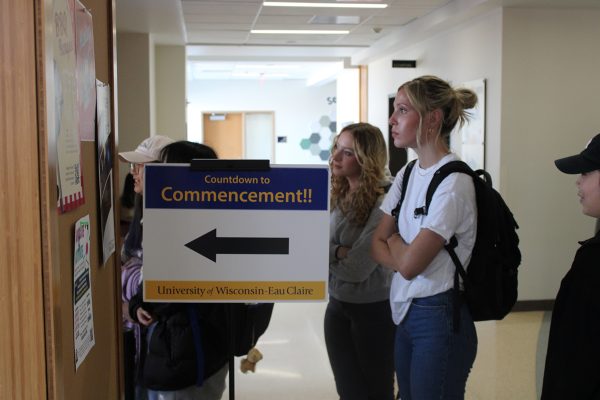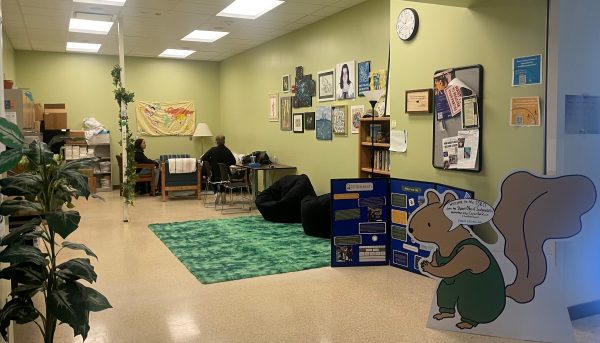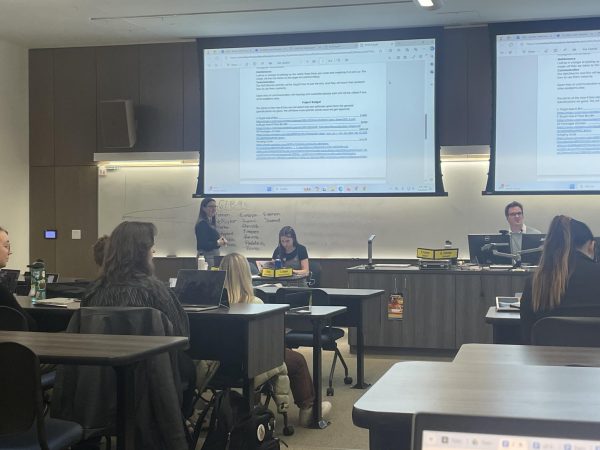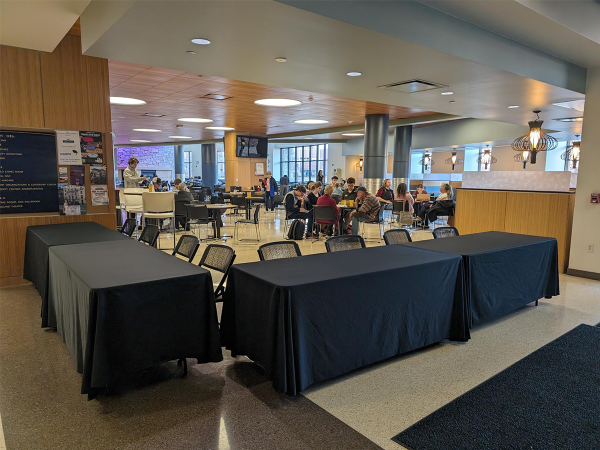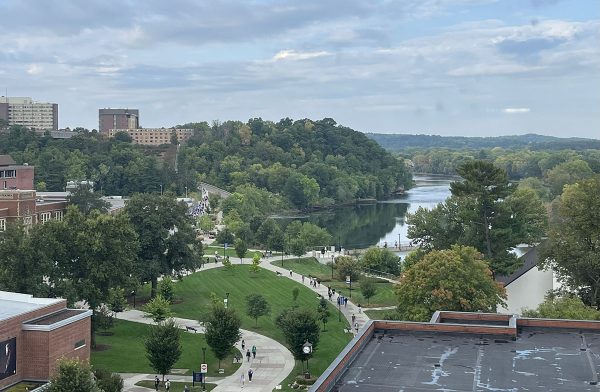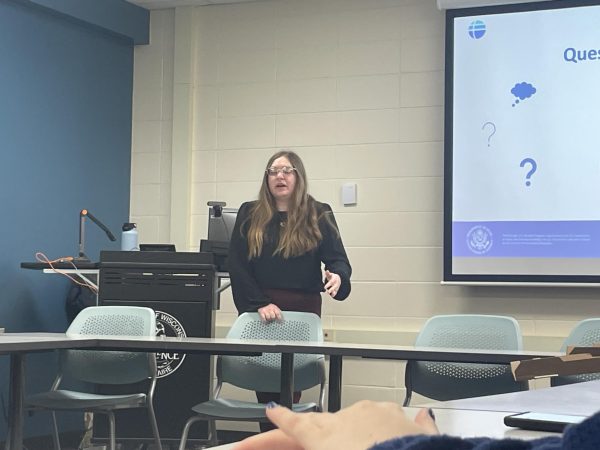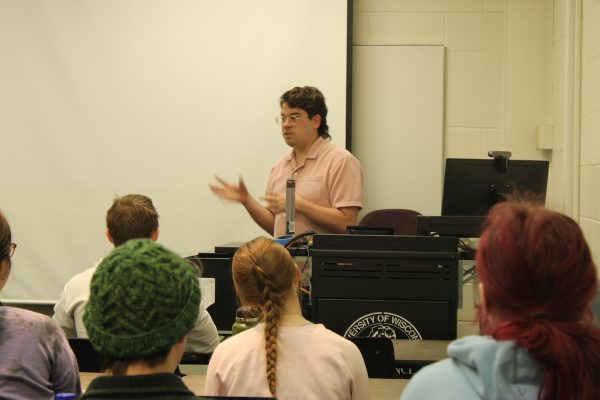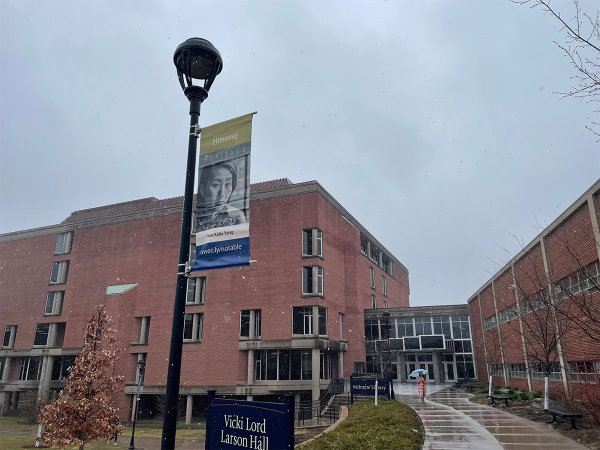Eau Claire community members react to Trump’s executive order
The idea of a welcoming city is embraced in Eau Claire
More stories from Graham Rowe
Photo by Andee Erickson
Student’s hold up signs supporting immigration at Trump’s pre-election visit to Eau Claire in 2016.
Over the weekend, President Donald Trump signed an executive order banning entrance to the United States for Syrian and all other refugees indefinitely for 120 days. He also ordered a 90-day ban of migrants from seven mostly Muslim countries.
The order halted entrance from those in Iran, Iraq, Libya, Syria, Sudan, Somalia and Yemen because representatives of the Trump administration said they see travelers from those countries as a potential threat to national security.
The national order is raising concerns in Wisconsin, including the students, faculty and staff at UW-Eau Claire. Chancellor James C. Schmidt addressed the issue Tuesday at an open forum.
“While this executive order has raised questions and caused uncertainty for many, it does not, in any way, change our university mission nor our commitment to fulfill it,” Schmidt said. “I want to be clear. Nothing in our mission and core principles has changed. We continue to champion the global learning and immersion experiences that are the essence of the transformative liberal education that sets us apart.”
Eau Claire will redouble its efforts to welcome scholars from across the world, Schmidt said, and the university will have its doors open to immigrants and underrepresented people.
Many major cities in the U.S. are taking a similar tone with their resistance to another executive order that threatens to revoke federal funding from cities that remain a sanctuary city. Sanctuary cities are cities where law enforcement can’t ask about the immigration status of those they encounter and can’t report undocumented immigrants to federal agencies.
Madison is one of those cities showing resistance to Trump’s order, but not everyone considers it a true sanctuary city.
The Badger Herald, UW-Madison’s student newspaper, reported that while the Madison Police Department’s code of conduct shows they won’t arrest anyone solely for suspecting they’re illegal immigrants, the department will comply with the U.S. Immigration and Customs Enforcement when asked.
Eau Claire is not a sanctuary city, but city council member Andrew Werthmann said he hopes it becomes an official welcoming city. Werthmann immigrated to the U.S. from Scotland when he was two years old and echoed Schmidt’s sentiment regarding the recent order by hosting the “Welcoming City Rally” on Wednesday night.
He said the purpose of the event was to support welcoming cities and give community members the opportunity to sign a proclamation that affirms Eau Claire as a welcoming city and to prompt local governments to pass resolutions to comply.
“I think that these are very positive things and it ties into the fact that (Madison) recognizes the strength from being inclusive and being welcoming,” Werthmann said. “I think the sentiment is one of love and it’s one of acceptance and it’s recognizing that strength comes through a diversity of people.”
Paul Kaldjian, an Eau Claire professor of geography and anthropology, taught an honors course that asked the question on what it means to be a welcoming city. He said cities that are welcoming to diversity are more prone to attract young people to them as well.
“I would like our city to very intentionally take a position of welcoming-ness that would be more than just having a couple of ethnic festivals or something like that,” Kaldjian said. “That means a person of any background can walk through this city with a high degree of comfort in being who they are.”
Patrick Delaney, a fifth-year student studying criminal justice, said sanctuary cities have their pros and cons.
From a policing standpoint, Delaney said a small percentage of illegal immigrants could come to these cities and bring crime, however if police are able to build good relationships with illegal immigrants, everyone can benefit.
“If you have a good relationship with someone you know to be an illegal immigrant, they are much more willing to give you information regarding crime that happened in the area or something like that,” Delaney said. “They are a resource law enforcement can use to keep everyone safe.”
Chancellor Schmidt addressed the importance of community in his blog post.
“We are a community, called to support one another, and to support each other with dignity and respect,” Schmidt wrote, “No matter what nation we call home, what religion we may practice or what identity we claim.”
Projects Editor Andee Erickson contributed to this report.

